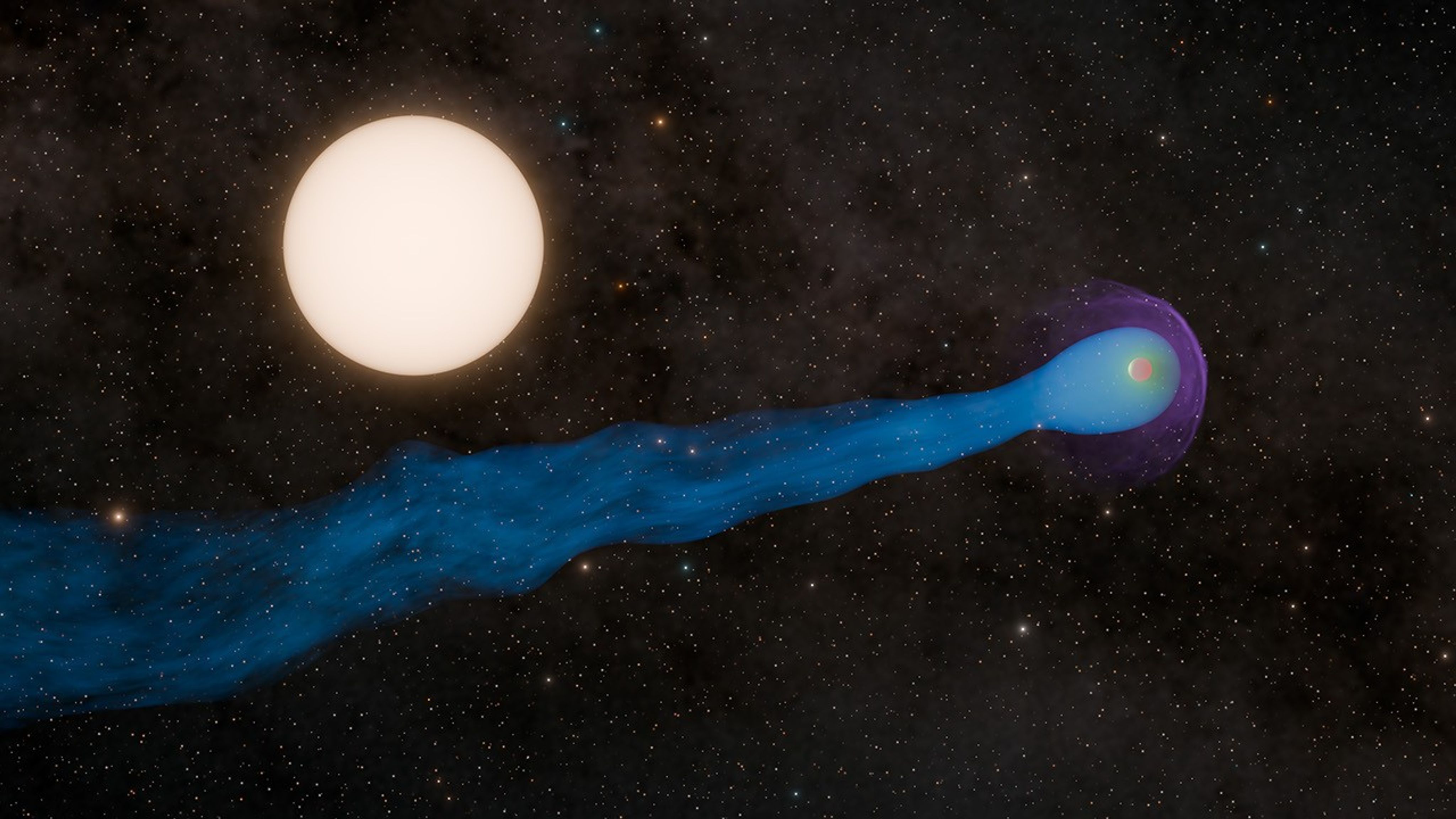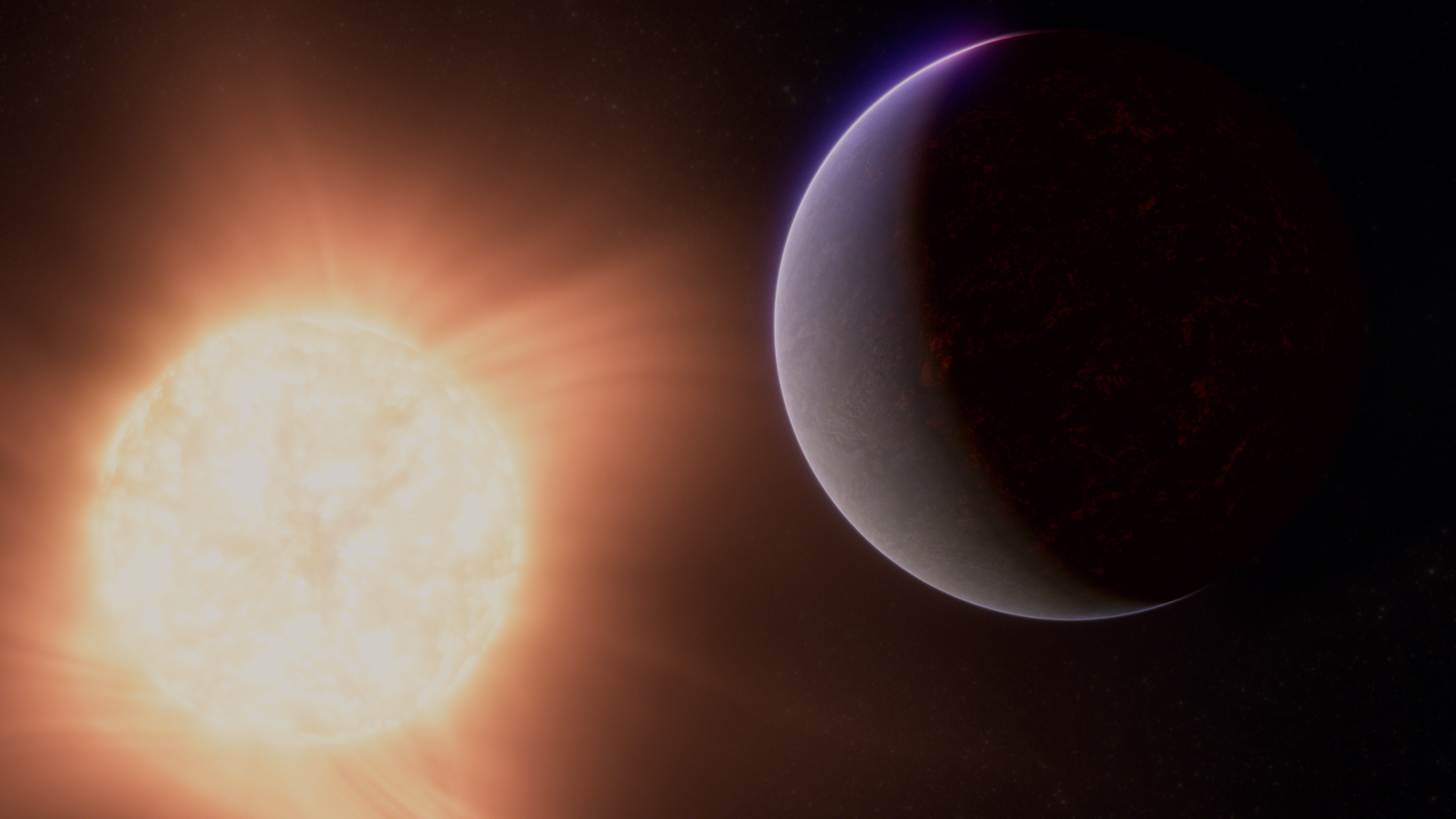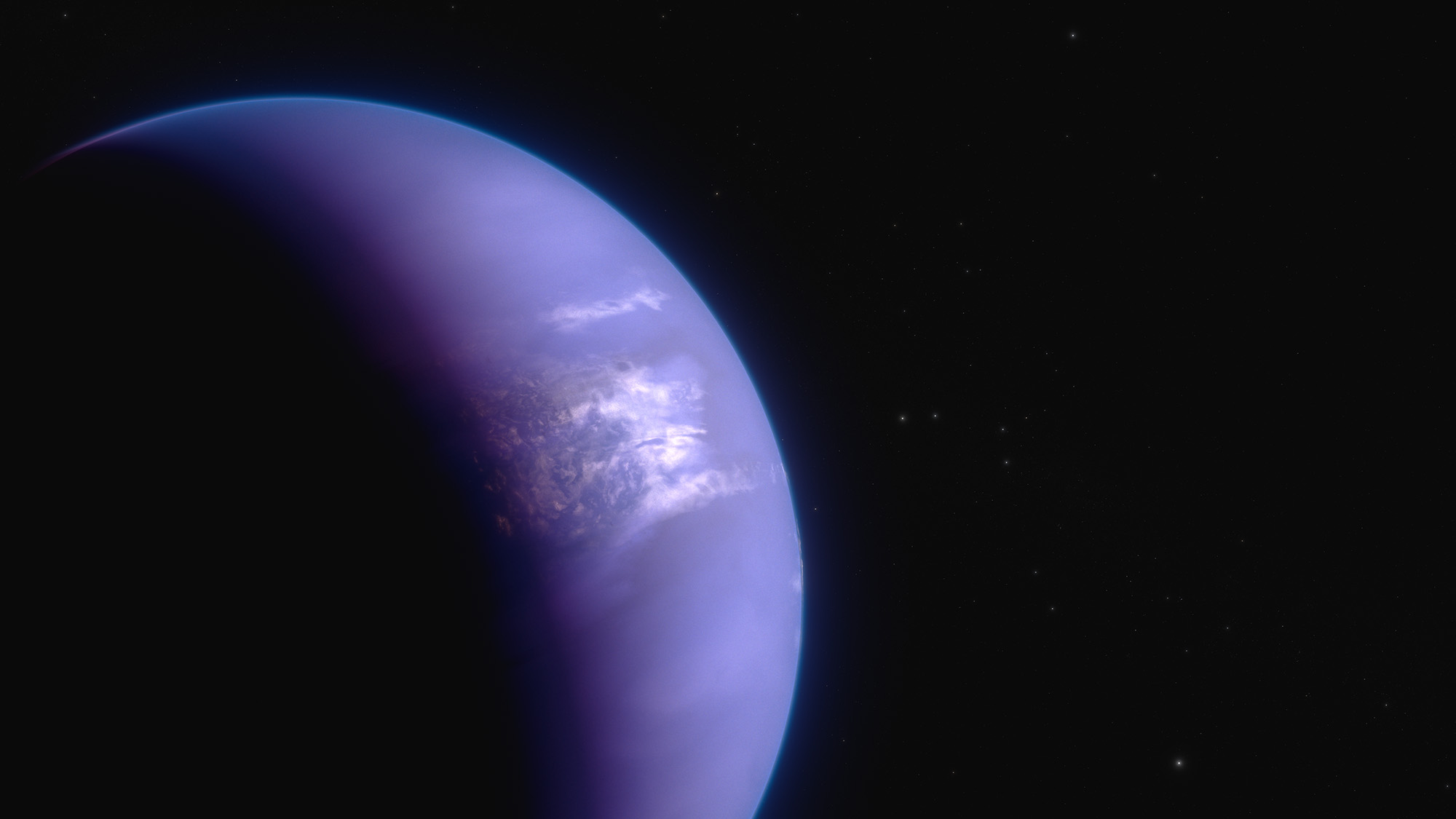Exoplanet Atmosphere
News & Articles

Discovery Alert: A Planet with a ‘Tail’
The Planet WASP-69 b The Discovery The exoplanet WASP-69 b has a “tail,” leaving a trail of gas in its…

NASA’s Webb Investigates Eternal Sunrises, Sunsets on Distant World
Near-infrared spectral analysis of terminator confirms differences in morning and evening atmosphere Researchers using NASA’s James Webb Space Telescope have…

NASA’s TESS Finds Intriguing World Sized Between Earth, Venus
Using observations by NASA’s TESS (Transiting Exoplanet Survey Satellite) and many other facilities, two international teams of astronomers have discovered…

NASA’s Webb Hints at Possible Atmosphere Surrounding Rocky Exoplanet
Researchers using NASA’s James Webb Space Telescope may have detected atmospheric gases surrounding 55 Cancri e, a hot rocky exoplanet…

NASA’s Webb Maps Weather on Planet 280 Light-Years Away
An international team of researchers has successfully used NASA’s James Webb Space Telescope to map the weather on the hot…

NASA Astronomer Sees Power in Community, Works to Build More
Science is often portrayed as a solitary affair, where discoveries are made by lone geniuses toiling in isolation. But Dr.…
Multimedia














